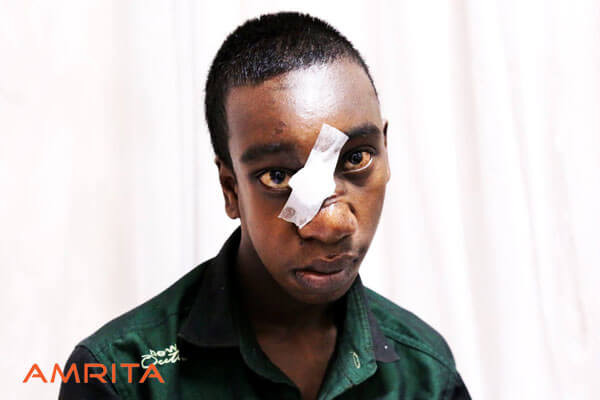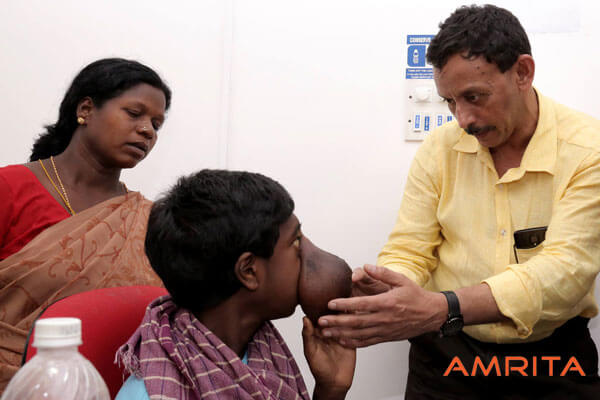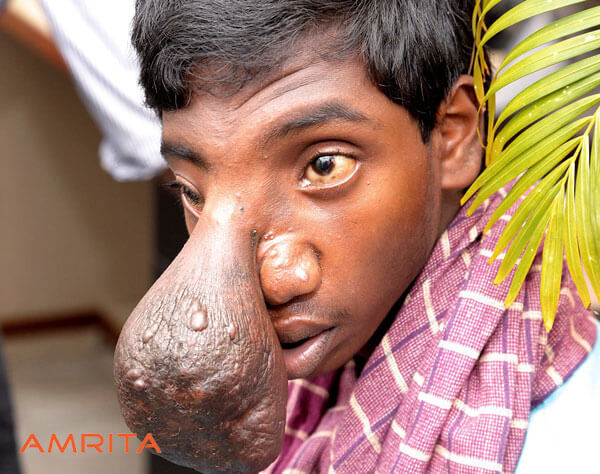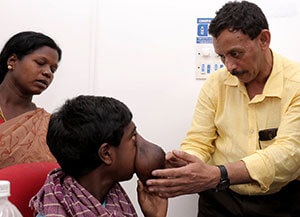July 2017, Kochi
Manikandan, the son of plantation workers in Palakkad, Kerala, was born with a rare medical condition called Eencephlocele. Encephalocele is a rare congenital disorder in which bones of a baby’s skull do not close completely in the mother’s uterus. This creates an opening through which brain tissue and cerebro-spinal fluid protrude out of the head in a sac-like structure.

Manikandan’s parents watched their son’s life unfold as a daily, unending tragedy. Past infancy, patients usually live an isolated life, ashamed to show their face in public. Manikandan was no different – until earlier this week, a fist-sized ball of brain matter hung from his nose as a pendulum and he did not mingle with children his age because they would make fun of him. It obstructed his vision and deformed his nose and face.
A 10-member team of surgeons at our own Amrita Institute of Medical Sciences & Research Center, Kochi changed all that, removing the entire deformity in a surgery that lasted 11 hours.

Dr. Subramania Iyer, head of the institute’s Plastic & Reconstructive Surgery, explained their process: “It was a complex surgery. Manikandan’s encephalocele was very large which had pushed the bone of his right eye outwards. For surgery, his skull was opened and the normal brain isolated from the sac of non-functioning brain matter hanging from his face. The removal of the deformity left a defect in the skull, a portion of which had to be reconstructed. The patient’s eye sockets were repositioned to remove the deformity in the right eye, and the nose was also remodeled. All these were huge surgical challenges. Manikandan has now recovered fully from the surgery and is ready for discharge. He will now be able to attend school and participate in all social activities like any other child of his age.”

Doctors at Amrita say they were drawn to working at an institution that does not shy away from big challenges, and where patients in need can get treatment, regardless of the level of complication or their financial situation. Since 1998, Amrita Hospital has been building up a cutting-edge medical infrastructure that has become a leader in innovative procedures, and has treated more than 4.5 million people free of charge.

